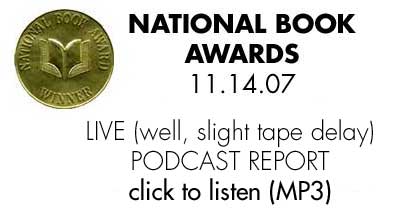I will have more podcasts later, but Fran Lebowitz has taken the stage. She is mentioning many things about the writer strikes and, contrary to her thoughts expressed to me on the podcast interview about winging it, she’s reading from a piece of paper.
Of reruns replacing first-run television shows: “Apparently, there are some people who observe the difference.”
“So in the generous spirit that I know exists in this room, if there are people at your table who you cannot place, please extend a warm welcome to the Bailey family from Toronto, who couldn’t get in.”
“It was rumored that illegal immigrants were given library cards.”
This is light humor, but she has the crowd downstairs laughing.
“There are four categories, yet there are twenty finalists. Therefore, there will be four winners and sixteen non-winners. I am happy to call them non-winners, but I must tell you that of all the phrases that bug me, the oft-repeated ‘win-win’ that bugs me. We know there’s no such thing as ‘win-win,’ because it’s often spoken by the winner-winner. There is such a thing as lose-lose, and that’s what is known as life-life. And there has in one case been lose-win, which was known as Bush v. Gore.”
